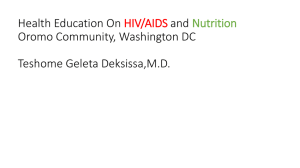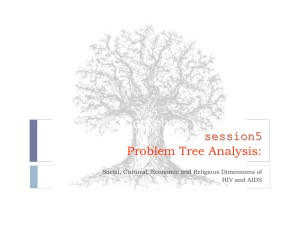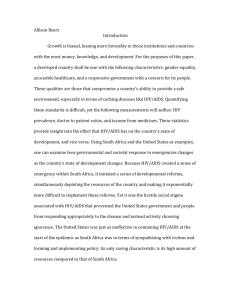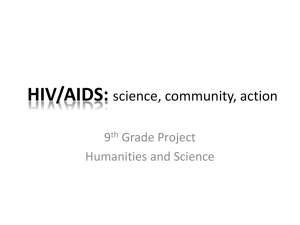Women, Culture & HIV/AIDS An Anthropological Assessment:
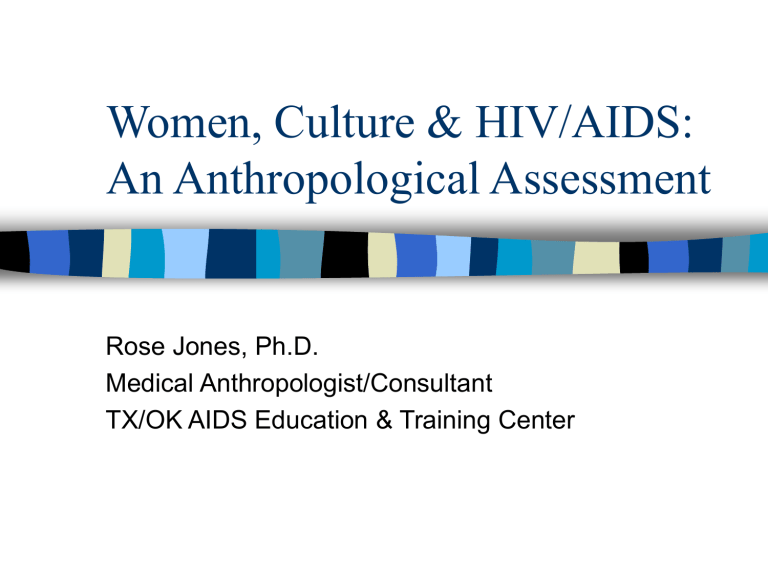
Women, Culture & HIV/AIDS:
An Anthropological Assessment
Rose Jones, Ph.D.
Medical Anthropologist/Consultant
TX/OK AIDS Education & Training Center
OBJECTIVE
Apply an anthropological perspective to women and HIV/AIDS
GUIDELINES
Stereotype vs. Generalization
Nomenclature
“Culture” Concept
BIOMEDICAL PARADIGM
OF CULTURE
Race/Ethnicity
Linguistic Affiliation
“Risk” Groups
BIOLOGY & CULTURE
Although biology establishes and limits what is possible, it is society and culture that define and give meaning to the human body
WOMEN, BIOLOGY & HIV
Mucous membrane exposure
Quantity & content of sexual fluids
Microtears
Symptoms & Manifestations
WOMEN, SOCIETY & HIV
Hx of Gender & HIV/AIDS
Trauma & Violence
Economic Dependency
Gender Roles/Norms
EPIDIMIOLOGICAL TRENDS
Transmission
Ethnicity/Race
Commercial Sex
TRANSMISSION
1985 – 2002, AIDS for women in U.S.> from 7% to 26%
60% men are infected through MSM,
25% through IVDU, 15% through HS
75% women are infected through HS and 25% through IVDU
ETHNICITY
AA women comprise 13% of U.S. female population, account for 63% of
AIDS cases
AIDS is the leading cause of death among AA and Latino women 25-44 in
U.S.
New HIV cases for women in U.S., 64%
Black, 18% White, 18% Hispanic
COMMERCIAL SEX
WORKERS
Survival Sex
Sex Trafficking
GENDER & STRUCTURAL
VIOLENCE
Racism
Sexism
Classism
Poverty
CULTURE & HIV/AIDS
“…what people with AIDS share are not personal or psychological attributes. They do not share culture or language or a certain racial identity. They do not share sexual preference or an absolute income bracket.
What they share, rather, is a social position – the bottom rung of the ladder in inegalitarian societies…”
» Paul Farmer, MD, PHD
GENDER CULTURES
Biosocial Orientation
Gender Roles & Relations
Political Economy
“Unless the underlying struggle for millions to survive in the midst of poverty, powerlessness, and hopelessness are addressed, and the meanings of AIDS understood in the context of gender relations , HIV will continue to spread.”
Brooke Schoepf
FINAL REFLECTIONS


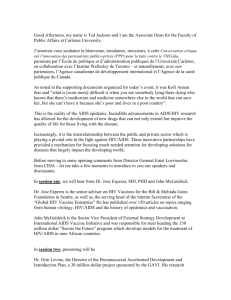
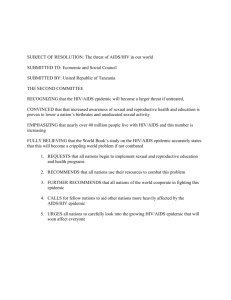
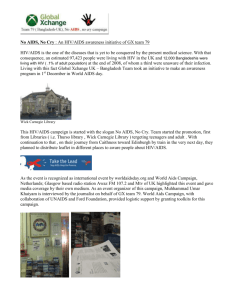
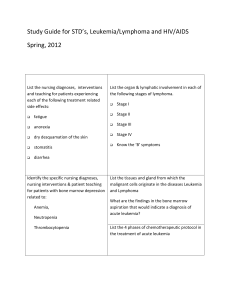
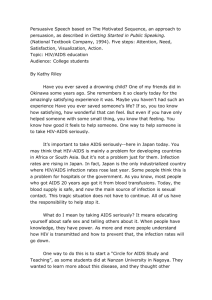
![Africa on the rise - Health[e]Foundation](http://s2.studylib.net/store/data/005761249_1-4e2609b64b2c374f99ff6e9dbe45edb8-300x300.png)
